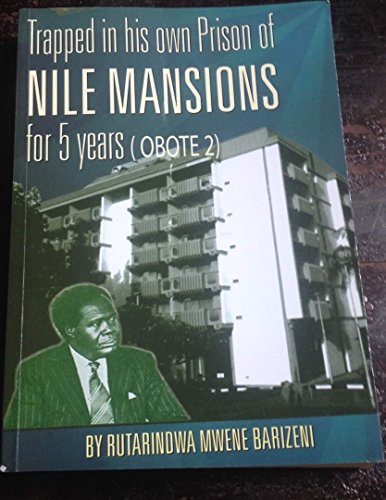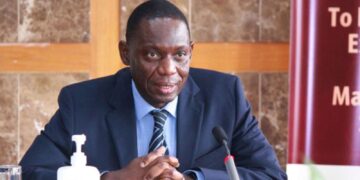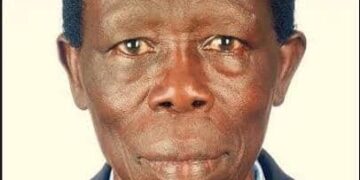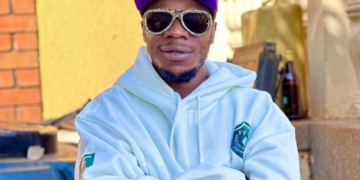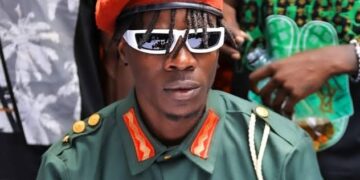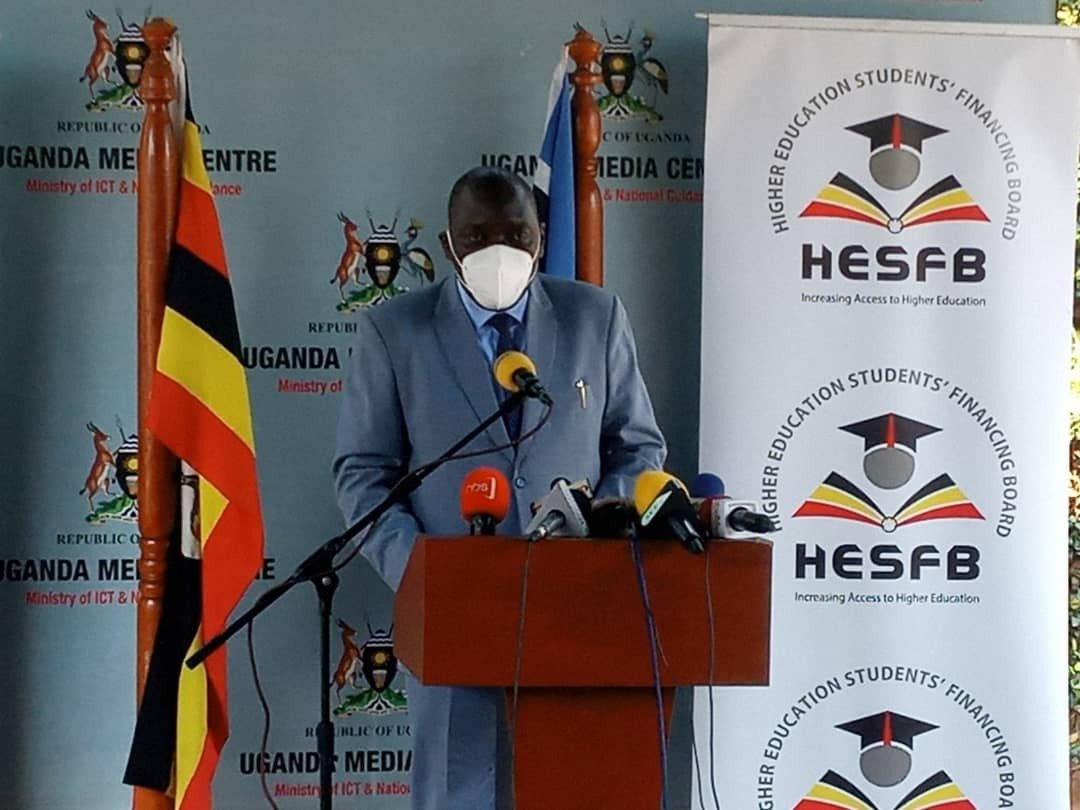From; Trapped in his own prison of Nile Mansions for 5 years (Obote 2); By Rutarindwa Mwene Barizeni.
As a hotelier, Rutarindwa was employed at Nile Mansions starting April 1979. He observed first-hand the going-ons at the hotel involving the principals of the Obote II government notably the Head of State Dr. Apollo Milton Obote who took permanent residence there for reasons known to himself, and perhaps few individuals close to him. The writer says his observations were triggered by the daily occurrences at the hotel which he said mostly involved human torture and suffering. In a 250 page book, Rutarindwa, a barman at the Hotel (during that time) gives a personal account of what transpired in the hotel during the Obote II regime.
Obote came to Nile mansions (1980) immediately after he was sworn in as Uganda’s Head of State for a second time, and the residents thought he had come for a brief rest before proceeding to his private residence in Kololo or, State House Entebbe. That day Obote did not move out. Then days turned into weeks. Weeks turned into months, and months into years until his government was toppled in 1985.
Sabasaba revisited the pages of this book and reports verbatim what the hotelier saw, and what conclusions he and others residents in the hotel made on what could have prompted the Head of State to abandon his official residences for a dilapidated hotel. We picked the first few statements from the preface of the book, and the main story follows.
“At the hotel, what captured our attention was the compilation of captives, detaining them on the floor above the presidential suite with most of them ending up dead. It was as if we had been invaded by a vampire feeding on human blood and flesh! Security Intelligence had created a suite, 326 on the third floor, just about 40 meters away from Obote’s suite 217, for these captives. This was hardly a week after he started residing at the mansions. After considering with much difficulty many probabilities as to why a Head of State had opted not only to stay in a collapsing hotel but to also turn it into a death center, all my colleagues came to a strange conclusion.“
“They believed he could have been under the devil’s influence, something which I adamantly refused to believe. I kept digging deeper, until I came up with my own conclusions towards the end of Obote’s rule. I was in this death centre along with the initiators of the atrocities; Uganda’s Head of State then Doctor Apollo Milton Obote together with his Chief security officer, Late Major General David Oyite Ojok. I was no one’s spy but an employee of the hotel”
Nile Mansions, formerly named Nile hotel by former President Idi Amin at its official opening, was one of the few high-end hotels in the country, which was turned into a military and government facility. It is currently known as Kampala Serena hotel. In the Nile Mansions, prisoners were killed and a few lucky ones were released to tell the world what was taking place.
In his second presidency, Obote spent almost five years holed up in the dilapidated hotel-cum-prison of Nile Mansions at the urging of his chief security adviser Major General Oyite Ojok. Oyite figured that Obote would be safer in the hotel because no one would think that a head of state would sleep in what was infamously known to be a death centre
A few of the captives were lucky to escape from this facility including Matayo Kyaligoza, a freedom fighter with the Yoweri Museveni-led National Resistance Army who escaped using a garment tied to the louver of an outer window to the amazement of both security operatives and hotel staff. The captives were usually detained in suite 326 on the third floor just about 40 meters from Obote’s suite 217. However, most of the captives brought in by the regime’s intelligence operatives “fishers of men” ended up being killed in a prison ironically they shared with the head of state.
Obote comes to Nile Mansions
Towards the end of December 1980 after the rigged elections, Paulo Muwanga had successfully completed his mission of bringing Obote back to power. The Uganda Patriotic Movement led by Yoweri Museveni immediately as expected issued a statement saying Ugandans had been cheated and urged them to continue struggling for the establishment of a true democratic way of life in Uganda.
Obote “Nyamurunga” the beautiful bird of UPC first came to the Nile Mansions a few weeks after his return from exile in Tanzania where he had lived for nine years. On this first visit before the elections, which was more or less a courtesy call, he met friends in the hotel suite organized for him, and finally returned to his home on plot 10/13 Impala avenue in Kololo.
A few months after this visit, he secretly invited, by telephone, members of the Electoral Commission to his home in Kololo. They were all fully booked residents of the Nile Mansions. Museveni who was also a resident at Nile mansions got wind of what was going on but kept cool.
It was never easy to tell what Museveni was up to. He was hardly seen in the company of anybody other than his bodyguards and never used to talk too much other than passing a word of greeting. At the City Square in his first public UPM rally, he had warned of action against whoever would inherit Idi Amin’s chair undemocratically. This was directed to none other than Obote and I think Museveni suspected Obote could connive with the electoral commission in order to fulfill his ambition of coming back to power.
Obote returned to the Nile Mansions the day Muwanga passed a decree to the effect that nobody was supposed to announce the 1980 poll results. According to the decree, they were supposed to be announced only by him the chairman of Military Council at the time. The final results were announced while Obote was at the Nile Mansions. Beaming with joy, Obote stood at the balcony and shouted at the top of his voice, “Paulo, we have won!” there was no doubt he had been drinking.
In the month of December 1980 immediately after the swearing in ceremony at Parliament House, Obote headed back to the Nile Mansions where he had earlier adorned his well-selected ceremonial suit. When we saw him come into the hotel we thought the old man had come for a brief rest before proceeding to either the Head of State’s residence in this case Entebbe State House or to his private home on plot 10/13 Impala Avenue Kololo. We were however very wrong. He had come to stay for good. It was unbelievable. He remained holed up in suite 217 for the rest of the day. He never walked away as we had anticipated.
What had prompted a new Ugandan leader to opt for this un-refurbished, dirty block of buildings became a mystery to us. This was a hotel and one would have expected a ceremony at this venue but there was none. Days soon became months. They would turn into years and Obote was not moving out of the Mansions.
In his first two weeks on the job, Obote who was his own Minister of Finance would wake up every morning, eat breakfast, dress nicely and be driven to the nearby Ministry of Finance Headquarters. He was also his own Minister of Foreign Affairs, which shared premises with the president’s office at the time but he never set foot in the ministry’s offices.
From the Finance Ministry’s headquarters, Obote would be driven back to the Nile Mansions in a big convoy of Mercedes Benzes and a mounted anti-aircraft gun on a V.8 Land Rover, lest jet fighters attack him aerially!.
The curtains in his official car, the Mercedes Benz were always drawn and nobody on the streets ever saw his face. He would come back at around 4:00 o’clock in the evening sandwiched by Tanzanian bodyguards. A Tanzanian waiter always followed from behind or walked ahead, carrying a bag containing, among other things, a bottle of John Walker Red Label whiskey and water for mixing.
We always knew who was coming in; Obote or Muwanga, because a fellow member of staff would on hearing the sirens from afar, move to our observation station on the first floor and monitor everything downstairs. Our passwords for incomings from our observation point were always “Bwete” if it was Obote and “Gulyokereyo” if it was Muwanga. Baganda had given the Bwete pet name to Obote when he was still in good books of their late King Fredrick Mutesa. He had also married a Muganda Miria Kalule and therefore as a son-in law he deserved a totem name, hence the name Bwete.
By the time Obote started staying at the Nile Mansion, this block of buildings was no longer fit for any high-profile and dignified person, not to mention a head of state. We had anticipated some renovation soon after the elections because since the ouster of Amin and the subsequent regimes, every corner of the complex had been vandalized.
Soldiers had turned the sofas into beds and so were the floor carpets. The management of the hotel kept moving the carpets until most of the floor was bare. In the lounge we had only one presentable sofa set, which we had moved to the area near the reception at the front office and the carpet here was rotting away. For the main lounge not to look like an empty gymnasium, we improvised by transferring the hard wooden armchairs from the balconies of the rooms.
For Obote however, this dilapidated hotel was home. He would come in every evening, have his meals prepared by his chefs, drink his whiskey, sleep and leave for work every morning.
Other big government officials who were fully booked at the Nile Mansions included; Vice President Paulo Muwanga, Prime Minister Otema Alimadi, the Army Commander Major General Tito Okello and the Chief of Staff Major General Oyite Ojok. These officials however, utilised their suites as resting rooms and meeting centres. They would retire to their residences at the end of the day.
Why stay at the Nile Mansions
At first we thought Obote might have wanted to stay in Nile Mansions to avoid relatives and friends who would mob him at his otherwise small house in Kololo and inconvenience him. He may also have wanted some privacy in order to go about his otherwise too much work without disturbances. We also thought the distance from Kololo or Entebbe would have seemed too long for him but we were far from the truth.
Obote had come back to Uganda a sickly man. He sometimes went to office putting on only stockings in his feet, without shoes. He was often seen coming down the stairs or out of the lift, holding his chest and walking in stockings of the same color as his trousers. He would then dive into the back seat of his limousine and be driven to work.
Two weeks after working from the Ministry of Finance headquarters, Obote started working from the president’s office located on the fourth floor in the northern wing of parliament buildings. He went to his office almost daily. He would leave the Nile Mansions at around 9.00 o’clock in the morning and come back between 11pm and 1am. A very close Tanzanian bodyguard of his once told me, “This president of yours is not leading you anywhere. He just spends most of his time in office drinking and makes us leave so late. One day we shall be ambushed and killed at any centre between parliament- Radio Uganda roundabout or here at the Nile Mansions itself.
Prime Minister Otema Alimadi was one of Obote’s drinking partners. They drank the same brand of whiskey, Johnnie Walker Red Label. Otema always drank a 1.5 litres bottle while Obote downed a 750ml. In most cases Obote’s whiskey rounds were poured from a fresh bottle.
As time went by, Obote’s sickness seemed to be putting him down. He was flown to Milan, Italy where he spent close to a fortnight undergoing treatment. This trip turned out to be the longest time Obote had stayed out of Nile Mansions. When he came back from Milan, Obote returned to the Nile Mansions and we continued to wonder why this man was eager to die here (Nile Mansions).
Who was in charge of his wellbeing? Apart from the presidential staff, didn’t he really deserve to have a close relative nearby? He had a personal assistant, Dr Opiote and a lady called Florence, who was the house keeper and they were both from his home area but where was his wife, First Lady Mama Miria Kalule Obote? We kept asking ourselves. One of his sons came by the mansions to pick some bottles of Uganda Waragi until Florence started hiding from him. She would tell us to give the boy only one bottle if he insisted and she always replaced it.
A day after Obote’s return from Italy and now confined in his suite on doctor’s advice; a stretcher was brought in by the presidential staff and taken upstairs to his suite. At this moment, we thought the man was on the verge of his death. Rumours were rife among hotel staff but the man held on.
One month went by and Obote resumed work but this time he returned to the mansions early. He had not resumed his drinking yet. After full recovery, he resumed drinking but he was not smoking at least in public. Despite the fact that Obote was always under the protection of Tanzania’s most capable bodyguards, he was never at ease and always looked anxious.
In his day-to-day work, he was more of a figurehead than a president in charge. He always came back drunk deep in the night from office. His foreign trips remained few probably for fear of what befell his previous regime while abroad. His last foreign trip in 1971 had resulted in the coup d’état by his own army.
Obote’s official residence
Many people in the city of Kampala and elsewhere would never have imagined or believed that Obote was a fulltime resident of the Nile Mansions. Likewise, such people were sure Obote’s permanent residences were Entebbe State House and another on Impala Avenue where he owned a house. His convoy would move to and from these two centers regularly to hoodwink people into believing that those were his dwelling places. Nile Mansions was now popularly known and feared for its atrocities as a detention centre and human slaughterhouse.
Whether Obote was filled with trepidation over living in the private residential Kololo area, only him and his security advisers knew. He would have feared a commando attack in that otherwise densely populated area surrounded by bushes. At the hotel, we used to discuss Obote’s intentions of staying at the Nile Mansions and we always came to different conclusions.
In my endeavour to find out what made Obote opt for Nile Mansions and make it a death centre, I alerted my colleagues about some copper-coated bangle amulets, which I had observed were being worn by only three people who were almost the top brass in the Obote II regime hierarchy.
The three were Obote, Oyite Ojok and Odong Oduka. When I made this observation, all other suspicions on Obote’s stay came to a halt. My friends had not seen these amulets earlier. They waited to see the bangles themselves and when they did, we did not discuss Obote’s stay with us anymore. He was at the hotel on commands of the coast gods, we concluded.
Unlike my friends, I could not stop at this misguided belief. If Obote had come here because of these juju commands, the fear of his wife, the fear of his own home in Kololo and the fear of State House in Entebbe, what connection did his fears have with the imprisoning and killing of people in the same place he was residing in?
Were these people being offered as sacrifices since more and more people were being brought in daily to be killed? How much blood would satisfy his spirits? I was determined to continue with my research. We could have been wrong but we later learnt from a Tanzanian friend who explained to us that such spirits exist.
If that was so, then there must have been a betrayal by two of the three bangle amulet carriers because Odong Oduka and Oyite Ojok were killed in helicopter crash.
Tribal sentiments in the army
With Oyite Ojok and Odong Oduka now dead, Obote had to learn to dance to a new tune. A tune he always claimed to know but practically had no idea how to dance to it. Was he going to survive for long? To DP’s Paul Kawanga Ssemogerere and other political opponents, he always boasted and challenged them to show him their commanders. “Show me your generals” were his favourite words. Time had come for Obote the commander-in-chief to rethink and show the nation who among his generals were supposed to hold top positions.
As expected, tribal sentiments reared their ugly head. Obote’s love for his tribe, the Langi, surpassed that of the state or so it seemed. During his first regime when Amin boasted that he feared nobody but God, Obote in response would say, “I am the only African leader who does not fear a military takeover”.
Darkness had now befallen Obote and his second regime. Who would he lean on now for the regime to survive? Who would save him from a second fall? He was groping in the dark and as usual, his hand landed on one of his tribesmen. This man was going to be the next chief of staff of his forces.
The whole country thought that Brigadier Bazilio Olara Okello was the man in line to replace the fallen Oyite Ojok as chief of staff. It was not because people wanted him but it looked apparent because he was well known. In an army that had been unpopular with the people, the worst was expected. He had at one time been the central division commander and the atrocities committed by his forces were still fresh in people’s minds. He had at one time ordered civilians to adhere to every soldier’s request including sharing their spouses.
To Obote and his closest associates however, Bazilio was not the favourite man to fill Ojok’s shoes. This was, however, not because he could no longer torment the public but according to Obote’s lame excuses he was illiterate and a murderer. It may however, be interesting to know under whose command Bazilio had committed the atrocities.
He appointed his tribe mate with the hope that he would ensure his protection. Obote was however very wrong with his choice and he soon regretted his choice. The man Obote picked was Colonel Smith Opon Acak. The name sounded foreign, which could have been one of the reasons Obote selected him; to scare his opponents. He was not known in many circles apart from some areas in Mbarara in Ankole region where he had been a disgrace and tormentor of civilians. Many people around the country had never heard his name including soldiers.
Smith Acak was slender, tall and with a light complexion, an unusual feature for a Ugandan Luo tribesman. Many thought he was a Tanzanian or Mozambican who Obote had hired to take over the administration of his forces.
Brigadier Bazilio whom Obote had sidelined, had not appeared in Kampala since his transfer to Northern Uganda by Oyite Ojok. He was one of the most competitive Acholi fighters along with Col Kirama, Col Odong Latek, Lt Col Eric Odwa and many others. Most of these soldiers were more experienced and more disciplined than Obote’s choice.
It was not difficult for even a layman to realize that Acak was incompetent. Always clad in his military uniform, Acak would walk as if blown by wind always looking down. While sitting, he would sometimes pull out cigarettes from his trouser pockets or from the pockets around the shoulders of his uniform. His eyes, always bloodshot, were a manifestation of a body poisoned by alcohol. He was well-known among fellow officers as a high-ranking officer who fell down while saluting after losing balance.
Obote and the national radio took long to officially declare Col Smith as the new chief of staff of the armed forces. When his name was finally announced, many people had never heard his name and wanted to know the man who had replaced the mighty Oyite Ojok.
At the Nile Mansions, Acak’s conduct was unbearable. He could bark at any staff who crossed his way without a reason. Because of his harassment, we thought he was mistaking us for soldiers who were not saluting him as expected.
In our next series, we bring to you the speech Idi Amin gave at OAU conference which kept all his haters smiling including his nemesis Julius Nyerere
